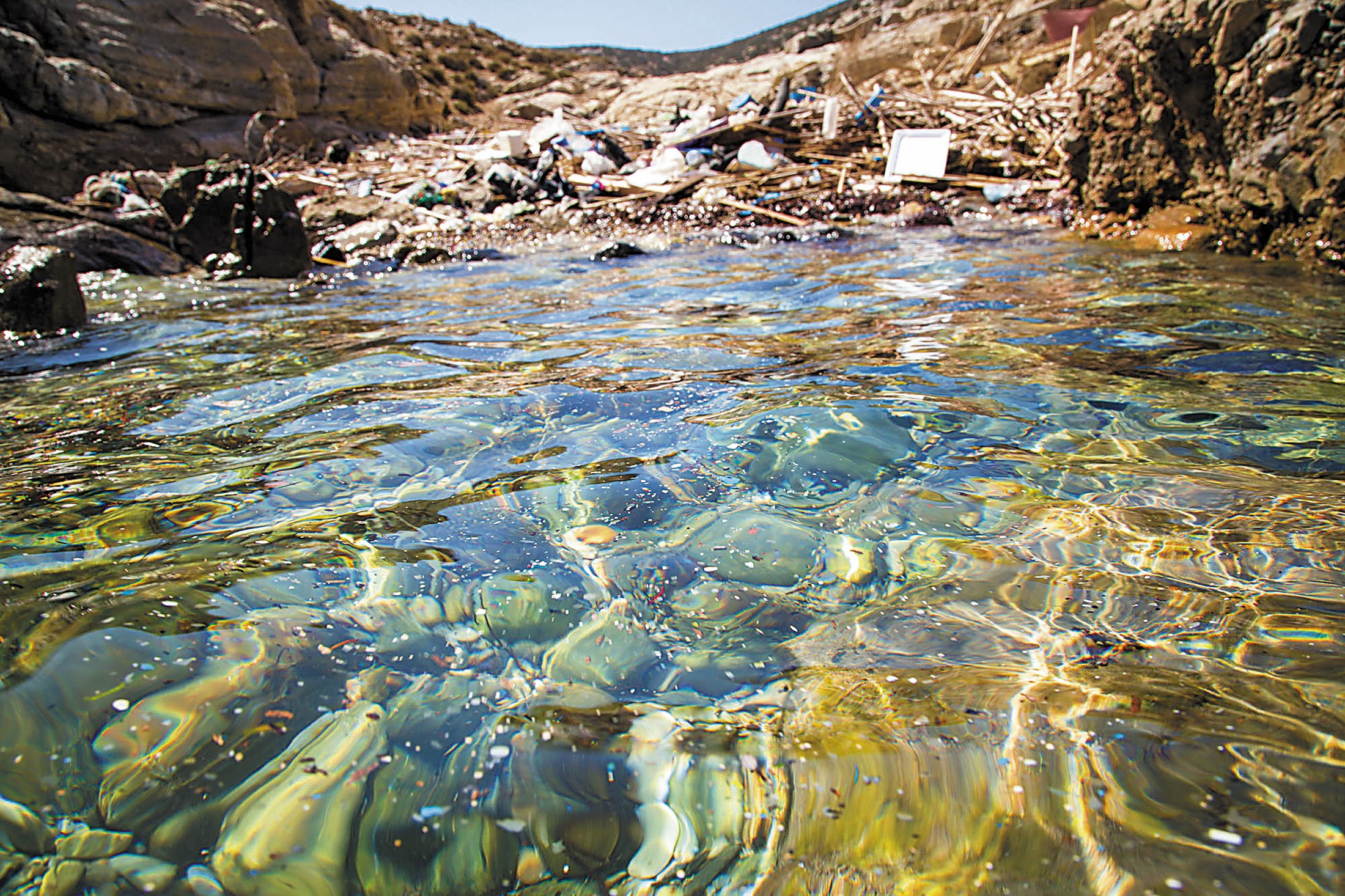For most people, the Mediterranean is the ideal holiday destination. As a dream vacation retreat, it conjures up images of deep blue waters, endless beaches and enchanting places. Unfortunately, sea pollution from plastic means this is no longer the case. In particular, according to research by the environmental organization WWF Hellas, 570,000 tons of plastic end up in the Mediterranean every year. But what does that number actually mean? Well, it’s equivalent to throwing 33,800 plastic bottles into the sea every minute!
And plastic pollution is expected to continue to grow rapidly in the coming years, with the production of plastic waste in the region estimated to quadruple by 2050.
According to the same study, microplastics are now everywhere, meaning that everyone on the planet is exposed to plastic pollution, no matter where they live. In fact, it is believed that we all swallow quantities of plastic unknowingly in the form of microplastics.
68 kg of plastic per capita
As it turns out, Greece produces around 700,000 tons of plastic waste per year, or 68 kg of plastic per capita.
The influx of tourists into Greece’s coastal areas increases waste production by up to 26% during peak season, while only 8% of plastic waste is recycled.
It is estimated that nearly 40,000 tons of plastic waste finds its way into the environment every year. Of this, 11,500 tons end up in the Greek seas, and of that, almost 70% winds up polluting the Greek coastline exacerbating sea pollution.
It is calculated that the Greek economy loses around 26 million Euros every year as a result of plastic pollution, which impacts on the tourism, shipping and fishing industries.
Sea pollution – The effects on human health
According to the latest research by the World Wide Fund for Nature (WWF), more than 87% of the Mediterranean Sea, which extends from the Atlantic Ocean to Africa, Europe and Asia, is contaminated with microplastics and other pollutants, including toxic metals and industrial chemicals.
Globally, water pollution is linked to 1.4 million premature deaths, which is problematic for the 150 million people who live on the coasts of the Mediterranean and the 270 million tourists who are drawn to its waters every year.
Extensive plastic pollution poses significant health risks due to the accumulation of forever chemicals (PFAS / Per- and Polyfluoroalkyl Substances).
The biggest polluters
According to the survey, Egypt is the biggest polluter in the Mediterranean, producing 0.25 million tons of the plastic which ends up in its waters. Turkey comes next, producing 0.11 million tons, with Italy in third place, adding 0.04 million tons of plastic to the polluted sea. All this waste contributes to the 1.9 million fragments of plastic debris a study found per square meter on the Mediterranean seabed.
Danger to birds and fish from sea pollution
And it’s not just people who are affected by plastic pollution: according to the study, 344 species worldwide have been found trapped or tangled up in plastic. In fact, no fewer than 134 different species have fallen victim to plastic ingestion in the Mediterranean.
Today, 90% of all seabirds have some plastic in their stomachs (in 1960, this percentage was 5%), and this percentage could reach 99% (!) by 2050, if nothing changes.
It is common knowledge that plastics are choking the planet and threatening life on Earth… According to the WWF experts, 18% of tuna and swordfish have plastic waste in their stomachs (mainly cellophane and PET,) as do 17% of the Blackmouth Catsharks (Galeus melastomus) that live in the waters off the Balearic Islands.
Present in the environment for centuries
As the WWF points out, plastic is a particularly problematic material. It is lightweight, so it drifts easily. And it is durable, so it doesn’t biodegrade in the natural environment, where it can remain for tens or even hundreds of years.
Moreover, plastic’s problematic properties are compounded by the fact that solutions have yet to be found for its effective management.
Plastics are literally everywhere: in the soil, rivers, seas and thus in the food chain, with each of us inadvertently consuming five grams of microplastics every week.
According to experts, uncontrolled plastic production is not only drowning our cities and the natural world in plastic, it is also contributing to the triple crisis confronting our planet: climate change, sea pollution, and the loss of biodiversity.



